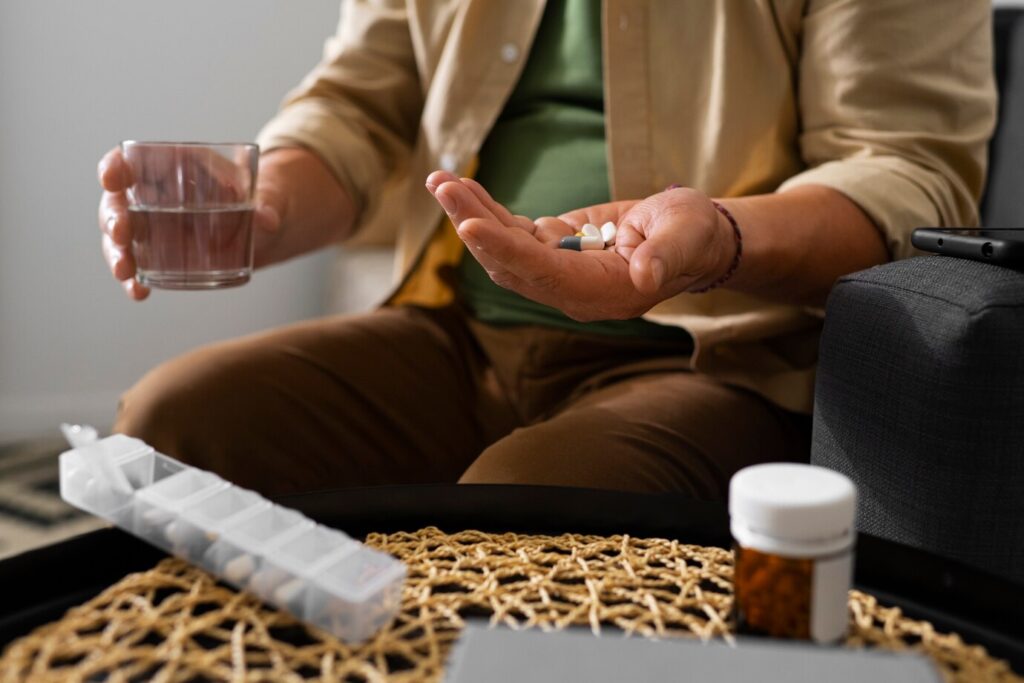Drug detoxification is an essential step in the recovery process for individuals struggling with substance abuse. It marks the period when the body clears itself of the substances it has become dependent on. But how long does drug detox take, and what symptoms should individuals expect during this process? In this article, we will explore the detox timeline, the factors affecting it, and the common drug detox symptoms people experience.
What Is Drug Detox?
Drug detox is the process by which the body rids itself of harmful substances, like alcohol, opioids, or other drugs. Detoxification is crucial as it prepares the body and mind for further treatment, including therapy and rehabilitation. However, detox is not a one-size-fits-all experience, and the length of time required for detox can vary depending on several factors.
How Long Does Drug Detox Take?
The duration of drug detox can range from a few days to several weeks, depending on several factors. On average, detox can take anywhere from 3 to 10 days, but some individuals may need a longer time for complete detoxification.
The key factors that influence how long detox takes include:
- Type of Drug: The drug being abused plays a significant role in determining how long detox will take. For instance, alcohol and benzodiazepines can have longer detox periods due to the severity of withdrawal symptoms. Opioid detox, on the other hand, typically takes less time but can still cause significant discomfort.
- Duration and Severity of Substance Use: Those who have been using drugs for an extended period or in high amounts may require a longer detox period. Chronic users often experience more intense withdrawal symptoms.
- Health Condition: An individual’s overall health, including liver and kidney function, will affect how quickly the body can eliminate toxins. If someone has a compromised immune system or existing medical conditions, detox may take longer and may require medical supervision.
- Withdrawal Symptoms: The presence of withdrawal symptoms significantly impacts detox time. Symptoms can range from mild discomfort to severe, life-threatening issues, particularly for drugs like alcohol or benzodiazepines. The severity of withdrawal often dictates the detox timeline.
Drug Detox Symptoms
During drug detox, individuals may experience a range of physical and psychological symptoms as the body adjusts to the absence of the drug. These symptoms can vary depending on the substance used, the length of time the drug was abused, and the person’s overall health.
Common Drug Detox Symptoms Include:
- Physical Symptoms:
- Sweating
- Nausea or vomiting
- Headaches
- Muscle aches and pains
- Fatigue
- Increased heart rate
- Shaking or tremors
- Appetite changes
- Psychological Symptoms:
- Anxiety
- Irritability
- Depression
- Insomnia
- Intense cravings
- Mood swings
- Difficulty concentrating
Withdrawal Symptoms by Drug:
- Alcohol: Alcohol withdrawal symptoms can begin within 6-12 hours after the last drink, with peak symptoms occurring around 24-72 hours. Severe withdrawal can lead to delirium tremens (DTs), a life-threatening condition that requires immediate medical attention.
- Opioids: Opioid withdrawal symptoms usually start within 6-12 hours after the last dose and can last for several days. Symptoms include body aches, nausea, vomiting, diarrhea, anxiety, and intense cravings.
- Benzodiazepines: Withdrawal from benzodiazepines can be particularly dangerous, with symptoms beginning within a few days and lasting up to a few weeks. Severe symptoms include seizures, confusion, and extreme anxiety.
- Cocaine: Cocaine withdrawal symptoms are typically less severe than those associated with alcohol or opioids but can still be uncomfortable. Symptoms include fatigue, depression, increased appetite, and intense cravings.
Detox Process and Professional Help
The detox process should always be done under professional supervision, especially for individuals withdrawing from substances like alcohol, opioids, or benzodiazepines. Medical professionals can provide medications to ease withdrawal symptoms, monitor vital signs, and ensure that the individual stays safe throughout the process.
In some cases, detox can be done on an outpatient basis, but more severe cases may require inpatient treatment. In a medical setting, detoxification is monitored closely, and doctors may prescribe medications to ease the withdrawal symptoms, making the process more comfortable and safe.
Conclusion
Drug detoxification is a crucial first step toward recovery, but the length of time it takes and the intensity of symptoms can vary significantly. The detox timeline depends on factors such as the type of drug used, how long it was abused, the person’s health, and the severity of withdrawal symptoms. While detox can take anywhere from a few days to weeks, it’s essential to seek professional help to manage withdrawal symptoms and ensure a successful recovery.
If you or someone you know is considering drug detox, it’s vital to consult with a healthcare provider or addiction specialist who can guide you through the process safely. If you need to schedule an appointment or would like to read more blogs, feel free to get in touch with us.



